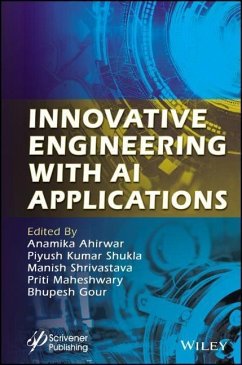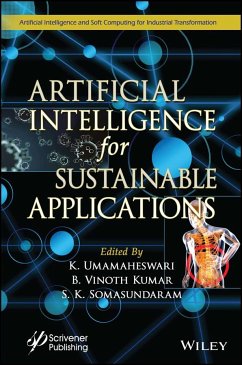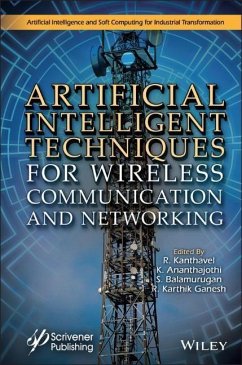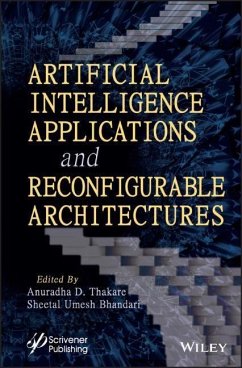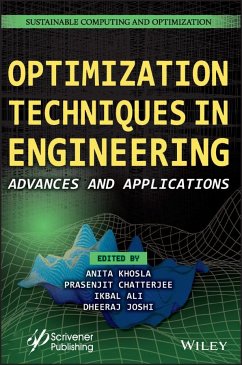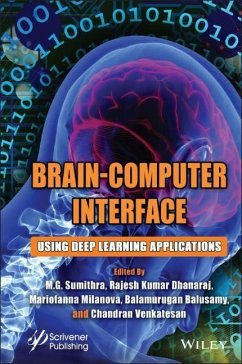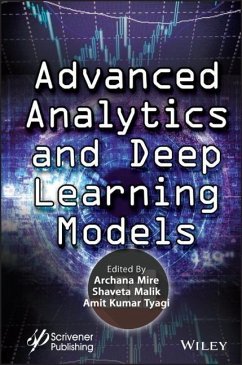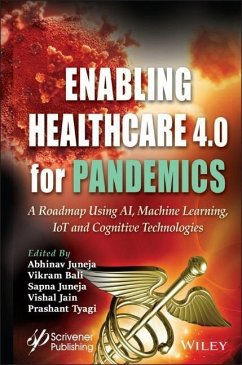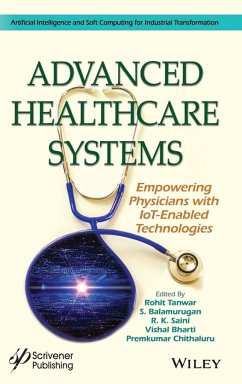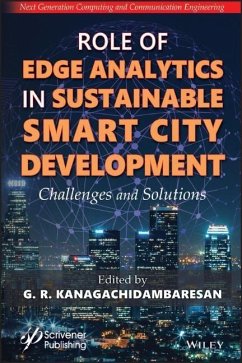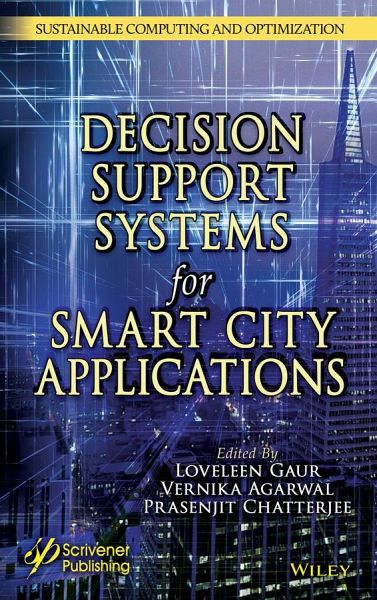
Intelligent Decision Support Systems for Smart City Applications
Versandkostenfrei!
Versandfertig in über 4 Wochen
171,99 €
inkl. MwSt.
Weitere Ausgaben:

PAYBACK Punkte
86 °P sammeln!
INTELLIGENT DECISION SUPPORT SYSTEMS FOR SMART CITY APPLICATIONSThis book provides smart city frameworks to address new difficulties by adding new features and allowing the city environment to react to collected data and information to increase the efficiency and sustainability of services for inhabitants.Making a smart city is an emerging strategy to mitigate the problems generated by urban population growth and rapid urbanization. This book aims to provide a better understanding of the concept of smart cities and the application of an intelligent decision support system. Based on the analysi...
INTELLIGENT DECISION SUPPORT SYSTEMS FOR SMART CITY APPLICATIONS
This book provides smart city frameworks to address new difficulties by adding new features and allowing the city environment to react to collected data and information to increase the efficiency and sustainability of services for inhabitants.
Making a smart city is an emerging strategy to mitigate the problems generated by urban population growth and rapid urbanization. This book aims to provide a better understanding of the concept of smart cities and the application of an intelligent decision support system. Based on the analysis of existing information there are eight critical factors of smart city initiatives: management and organization, technology, governance, policy context, people and communities, economy, built infrastructure, and natural environment. This book will focus on the application of the decision support system in managing these eight crucial aspects of smart cities.
The intent in writing this book was also to provide a source that covers the stage-by-stage integration of the four key areas involving planning, physical infrastructure, ICT infrastructure, and deploying the smart solutions necessary for city transformation. With this as the motivation, "Decision Support Systems for Smart City Applications" provides the application of an intelligent decision support system for effectively and efficiently managing the transformation process, which can aid various supply chain stakeholders, academic researchers, and related professionals in building smart cities. Various chapters of this book are expected to support practicing managers during the implementation of smart solutions for city transformation.
Audience
This book is aimed at both academics and practitioners alike in the fields of intelligent computing, decision support systems, the manufacturing industry, supply chain managers, stakeholders, policymakers, and other technical and administrative personnel.
This book provides smart city frameworks to address new difficulties by adding new features and allowing the city environment to react to collected data and information to increase the efficiency and sustainability of services for inhabitants.
Making a smart city is an emerging strategy to mitigate the problems generated by urban population growth and rapid urbanization. This book aims to provide a better understanding of the concept of smart cities and the application of an intelligent decision support system. Based on the analysis of existing information there are eight critical factors of smart city initiatives: management and organization, technology, governance, policy context, people and communities, economy, built infrastructure, and natural environment. This book will focus on the application of the decision support system in managing these eight crucial aspects of smart cities.
The intent in writing this book was also to provide a source that covers the stage-by-stage integration of the four key areas involving planning, physical infrastructure, ICT infrastructure, and deploying the smart solutions necessary for city transformation. With this as the motivation, "Decision Support Systems for Smart City Applications" provides the application of an intelligent decision support system for effectively and efficiently managing the transformation process, which can aid various supply chain stakeholders, academic researchers, and related professionals in building smart cities. Various chapters of this book are expected to support practicing managers during the implementation of smart solutions for city transformation.
Audience
This book is aimed at both academics and practitioners alike in the fields of intelligent computing, decision support systems, the manufacturing industry, supply chain managers, stakeholders, policymakers, and other technical and administrative personnel.




